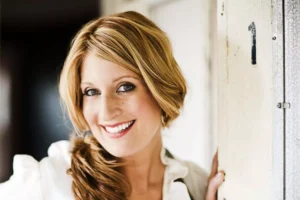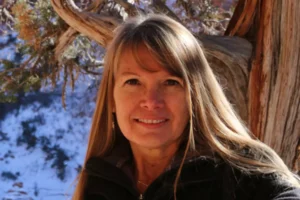Zack was halfway through what he considered a “personal” pizza but the menu called a “large deluxe.” I was taking my time with a Reuben sandwich. There were things on his mind. After filling me in about his progress on the master’s thesis, he’d tried to explain some mystery about the date of his wedding with Julie. The former topic was straightforward; the latter, if you have a Y chromosome, anything but.
There was a lull in the conversation as we restored our tissues, me with iced coffee, him with one of those fancy kinds of water. The bloom returned slowly to his cheeks. He came to with a start.
“What was I saying?”
“Something about differential equations, wasn’t it?”
“No, it was something more subtle and abstruse.”
“Tensor calculus?”
“No.”
“Julie’s mother?”
“That was it.” He rubbed his face. “Nice lady, though exhausting.”
“Ah.”
“But that’s not what I wanted to ask you about.”
“No?”
“It was about her brother, Oscar.”
“Why do you want to talk with me about him?”
“He’s an atheist.”
“Oh.”
It was a little hard to follow the thread.
“What about him, Zack?”
“He’s an atheist.”
“You said that.”
“I was wondering if you had any ideas about how to talk with him.”
I smiled. “I don’t know. Can you give me a little context?”
“Oh. Sorry. Well, Julie and I are having premarital counseling down at the church. It’s required.”
“I know.”
“And we happened to mention it in front of Oscar.”
“Yes.”
“He’s all right most of the time, but some things set him off, you know? He waited until Julie left the room, then said ‘You’re a smart guy, Zack. How can you believe that slush?’ ‘What slush?’ I asked him. ‘Do you mean about marriage?’ ‘That, of course,’ he said, ‘but I meant about God.’ ‘What about God?’ I asked. He said, ‘It’s all rot, you know.’ I asked, ‘How do you know it’s rot?’ He said, “Because it’s a lot of gas.'”
“Go on.”
“‘Well, Prof, I was getting fed up with him because I didn’t think he was serious. So I said ‘It doesn’t prove anything to call names like slush and rot and trash.’ ‘Not trash,’ he interrupted, ‘gas.’ I ignored that and started to say, ‘I’d be glad to talk when you’ve actually got something to say, but’ — and then he interrupted again. ‘I do have something to say.'”
“Did he?” I asked.
“He did. ‘I don’t mean to be rude,’ he said, ‘but it’s hard to hold one’s temper when people start blabbing about God.’ I hadn’t mentioned God — I’d only mentioned going down to the church — but I let that pass. He went on, ‘If He’s so good and so powerful, then why does He permit evil and suffering, hah, Zack? Answer me that. Either He’s not all-good, He’s not all-powerful, or He isn’t real.'”
“Not very original.”
“No. Old atheist standby. That’s what gets me about these guys. Each one thinks he’s the first person in the history of the world to wonder about the problem of evil. As if philosophers and theologians hadn’t been answering that question for centuries. Of course I was all ready for him.”
“Were you?”
“Prof! How can you ask? Didn’t we just spend a half hour talking about my master’s thesis? Is it or is it not about the problem of evil?”
“I think you spent more time talking about your wedding planning blues. So what did you say to this fellow?”
Zack said proudly, “I unloaded the classical replies on him.”
“My stars and little comets. All of them?”
“Well, one of them. Augustine’s.”
“Tell me what you said.”
“I made it simple.”
“Did you?”
“I did, really. I explained that God loves us. He could have made humans robots who would do the right thing no matter what, but in that case everything we did would be meaningless.”
“Was he listening?”
“Yes. That surprised me.”
“Go on.”
“But he argued.”
“What did he say?”
“He said ‘You just said your all-powerful God loves us. That wouldn’t be meaningless, would it?’ I said “Of course not.’ He said, ‘So why couldn’t He make us love Him back?'”
“He’d missed your point,” I remarked, “but at least he conceded that love is something good. That should have given you a point of contact.'”
“That’s what I thought. So I asked him, ‘Suppose Julie loved me only because I had drugged or hypnotized her. Would it be real love?’ And he said ‘No.’ So I said, ‘It’s like that with the love of God too. If we couldn’t do anything but love Him, then that wouldn’t be real love either.'”
“And then?”
“He answered, ‘So what?’ I answered, ‘That shows that for the first human beings to return God’s love, it would have to be possible for them to reject His love too. That’s what they did, and that’s why there’s evil.’ Good wind-up, huh? But he argued again.”
“How did he object this time?”
“He snorted and said, ‘If that’s how it is, we’d be better off not to have been created at all.'”
“Did you have an answer?”
“Sure. I came back with C.S. Lewis’s argument that it doesn’t make sense to say ‘I’d be better off not existing,’ because if I don’t exist, then there’s no ‘I’ to be better off. I thought I had him there.”
“And did you?”
“Did I what?”
“Have him.”
Zack frowned and scratched his chin. “That’s what’s surprising. Logically, I should have, but I didn’t. He gave me an eye-bulging look for a few second, snickered, slapped me on the back, and walked out of the room.”
I leaned back in my chair and asked, “What’s your own judgment on the conversation?”
“Total failure.”
“Agreed. And the reason?”
“The reason is that Oscar wasn’t serious. At the start, he was so condescending that I thought he wasn’t. Then, when he brought up the problem of evil, I thought maybe he was. But now I think my first impression was right after all. He wasn’t. Don’t you agree?”
“Well,” I began, “you’re certainly right to consider his state of mind. Sometimes people ask questions about God because they truly want answers. When that happens, you have to do your best to provide them. But sometimes they ask questions merely to mock or play games. When that happens, answering is worse than useless.”
“Useless, I get. Why worse than useless?”
“Because it encourages them in their mockery.”
“Oh, yeah. Like what Jesus said about the throwing pearls before swine.”
“Now you’ve got it.”
“So you think Oscar is one of the barnyard animals?”
“No, I said you were right to consider his state of mind. I didn’t deliver a verdict.”
“What other verdict could there be? Obviously he wasn’t serious.”
“The signs aren’t encouraging, I agree. He acted like a boor. But is it possible that he didn’t think you were serious?”
“Me? How was I not serious?”
I smiled. “That’s twice now you haven’t been listening. I didn’t say you weren’t serious. I suggested that he might not think that you were.”
“But why shouldn’t he?”
“We agreed that you were right to consider his state of mind.”
“Right.”
“I suspect that you needed to consider it a little further.”
“You’re losing me, Prof.”
“A few weeks ago you told me a bit about Julie’s family life.”
He gave me an odd look. “I did, but what’s that got to do with the problem of evil?”
“Zack, Zack. Didn’t you say that her father ran off with his secretary, her mother has leukemia, and she hasn’t heard from her other brother, the drug-addict, in years?”
“Yes, but —”
“This isn’t a problem of evil?”
Zack was silent.
I continued, “And it all comes home to Oscar too. Imagine how it sounds to him when he asks his sister’s grad-student fiancé why God allows him to hurt so much, and you start talking about whether existence can be compared with non-existence.”
He burst out, “Give me a break! What else was I supposed to do? He asked the question. All I did was answer it!”
“Did you?”
“He said, I remind you, ‘If that’s how it is, we’d be better off not to have been created at all.'”
“That was a declarative sentence, not a question.”
“Are you going to claim that he didn’t mean a question by that declarative sentence?”
“No, I think he did. But here’s the thing you have to know before you answer: What question did he mean?”
Zack opened his mouth, paused, and shut it again. The angry flush on his cheeks faded. He tried again. “I think — I thought — well, that he was asking whether we’re better off existing or not existing.”
“If that was his question, then your answer was good. I never skimp on philosophy when it’s needed. But I think he had in mind a different question.”
“I don’t see what it could have been.”
“You have to listen with the ears of your heart. I think he was asking, ‘Why should I believe this God gives a blank-blank what I’m going through?’ If that’s the question, it calls for a different kind of answer, doesn’t it?”
Light dawned on Zack’s face. “I believe it does.”
“How would you answer it?”
“I’d say,” he hesitated, “that I don’t know exactly why God permits this patch or that patch of suffering — um — but that I know what His attitude is toward it.”
“He’ll want to know how you know.”
“Because He took the weight of it all on Himself. He bled and He died for us. And when He rose —”
We were silent for a moment.
“Do you still need my advice about how to speak with Julie’s brother?”
“No,” said Zack. “I think now I know.”
Copyright 2006 J. Budziszewski. All rights reserved.










